Enabling the Institution for the Digital Economy: Key Future Trends
Track: Conference Activities
Session Number: 7538
Date: Mon, Nov 7th, 2022
Time: 9:00 AM - 10:00 AM
Room: Main Hall - General Session\Meals
Description:
The world now depends on the digital economy. IT is central to the institution's successful response and there are four pillars of strength required to succeed in this new world order:
• Trend 1: Change | Recoding the Institutional DNA
Vectors of change to the institution include recognizing student and research success is everything, education has become an export business, and data is our organizational lifeblood. Digital transformation is no longer an option, and the institution DNA will be recoded.
• Trend 2: Trust | Security is Survival
IT services need to be trusted, yet the cyberworld where we all coexist is a dangerous place. We need to prepare for the absolute worst-case scenario as a matter of course. Without effective cybersecurity, the institution may cease to exist.
• Trend 3: Being Human | New Workforce, New Workplace
We are entering a brave new world where our traditional relationship with work and leadership is changing. We need to provide a digital experience that is flexible, contextual, and free from the friction of hybrid operating models.
• Trend 4: Reduce, Reuse, Recycle | Reducing the Burden
Traditional responsibilities and accountabilities of IT cannot be neglected: create efficiency, lower costs, and ensure performance meets demand. Do it better by automating business processes and accessing new sophisticated technology services through platform integration.
• Trend 1: Change | Recoding the Institutional DNA
Vectors of change to the institution include recognizing student and research success is everything, education has become an export business, and data is our organizational lifeblood. Digital transformation is no longer an option, and the institution DNA will be recoded.
• Trend 2: Trust | Security is Survival
IT services need to be trusted, yet the cyberworld where we all coexist is a dangerous place. We need to prepare for the absolute worst-case scenario as a matter of course. Without effective cybersecurity, the institution may cease to exist.
• Trend 3: Being Human | New Workforce, New Workplace
We are entering a brave new world where our traditional relationship with work and leadership is changing. We need to provide a digital experience that is flexible, contextual, and free from the friction of hybrid operating models.
• Trend 4: Reduce, Reuse, Recycle | Reducing the Burden
Traditional responsibilities and accountabilities of IT cannot be neglected: create efficiency, lower costs, and ensure performance meets demand. Do it better by automating business processes and accessing new sophisticated technology services through platform integration.
Session Type: Regular Session
Target Audience: All
Audience Level: Beginner
Level of Customization: None or N/A
Project Phase: N/A
Project Go-Live: N/A
Session Type: Regular Session
Target Audience: All
Audience Level: Beginner
Level of Customization: None or N/A
Project Phase: N/A
Project Go-Live: N/A
Speakers
Primary Presenter

Mark Roman
Managing Partner
Info-Tech Research Group

